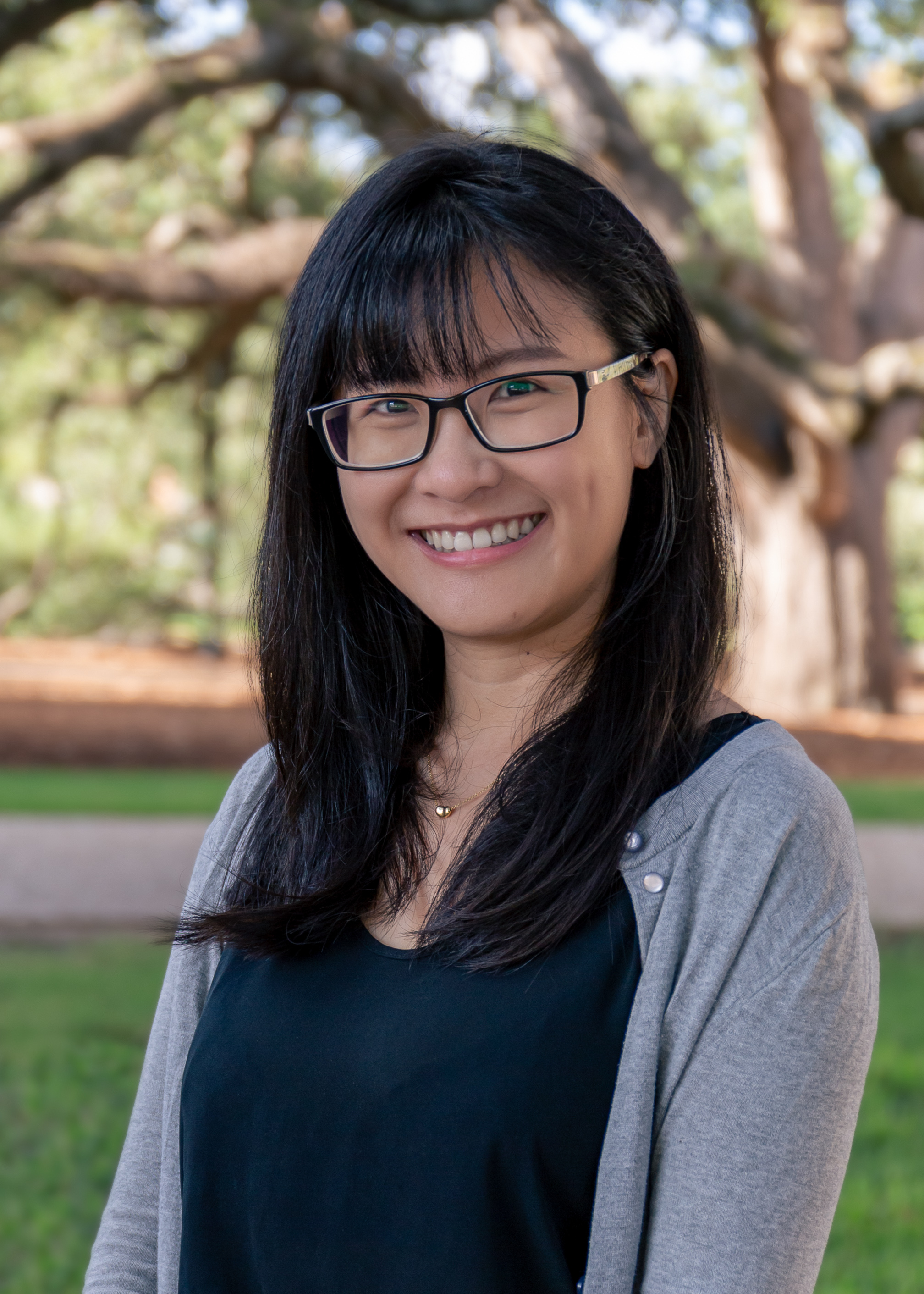Ph.D. in Educational Psychology: Emphasis in Special Education
The Educational Psychology doctoral program with an emphasis in Special Education (SPED) is a full-time course of study that prepares students for academic positions in universities and research institutions. The program offers challenging coursework grounded in the field’s most current evidence and the latest advancements in research methodologies. Doctoral students receive valuable research and teaching competencies that provide a competitive advantage upon graduation. All courses are designed to develop a strong background in research.
Our program consists of extensive coursework in cutting-edge research design and statistical methodologies. Students receive specialized coursework in special education practices and related issues. Additional core competencies are designed to enhance student competence in grant writing, research and college teaching.
Faculty research projects are supported by external funding sources from a number of federal, state and local entities. The array of research projects within the program provides opportunities for doctoral students to collaborate and gain valuable grant management and collaborative research experience. Students also have opportunity to conduct their own original research through coursework and present at national conferences, as well as publish in high-quality journals.
Why Emphasize in Special Education?
Doctoral students enroll in full-time coursework and engage in research and teaching experiences to prepare them for careers in academia. Our program offers:
● A collaborative cohort model.
● Challenging coursework.
● Latest advancements in research methodologies.
● Valuable research and teaching competencies.
Funding Opportunities
- The majority of doctoral students in special education currently receive funding that includes tuition and a monthly stipend.
- Funding options include teaching or supervision graduate assistantship (GAs), federal leadership training grants, and federal research grants.
- Competitive university level awards are available for students who qualify based on academic credentials and relevant experience.
- All student applications are reviewed to determine funding matches that align with student interests, interest, professional goals, and skills.
- Explore options:
SPED Admission Requirements and Deadlines
Applications are currently closed and will reopen August 1st for fall 2025 admissions.
How to apply
SPED Admissions
The doctoral program committee uses the listed criteria to assist in evaluating prospective student applications. Applicants are encouraged to use this as a guide in determining whether to apply to the program and in assembling their application packets.
Required Criteria for Admission to Doctoral Program
- Agreement to engage in full-time doctoral studies.
- Prior experience working with individuals with or at risk of disabilities.
- Bachelor or Master’s degree in a related area (e.g., special education, curriculum and instruction, bilingual education, psychology).
- Fit with Texas A&M University’s doctoral program (professional goals are compatible with program goals).
- Career goal of obtaining position in higher education or educational research setting.
Preferred Qualifications for Admission to Doctoral Program
- Teacher certification or instructional experience in school settings.
- Already earned Master’s degree in related field.
- Area of interest aligned with available SPED faculty.
Application Deadlines
The deadline for submitting an application to the Special Education Doctoral Program is December 1. Those accepted into the program begin the following fall semester.
Apply nowApplication Quality Indicators
Academic Potential
- GRE/Related Predictor
- GPA/Transcripts
- Previous degrees
- Prior scholarly accomplishments (e.g., peer-reviewed publications, conference presentations)
Personal Statement and Fit with Program
- Interest in educational research
- Awareness of SPED doctoral program goals
- Knowledge of the field of special education
Professional and Personal Experiences
- Research experiences
- Publication/scholarly presentation experiences
- Experiences with linguistically/culturally diverse populations
- Experiences working with individuals with disabilities
- International experiences
- First in family to attend college
- Relevant alternative educational experiences
Letters of Recommendation
- Letters speak to applicant’s scholarly potential (rather than clinical)
- Letters are provided by supervisors/advisors (rather than peers/friends)
Letters from individuals in higher education settings are preferred.
Program Details
Degree: Ph.D. in Educational Psychology (EPSY)
Emphasis: Special Education (SPED)
Degrees Offered: Doctor of Philosophy (Ph.D.)
Select School of Education and update credit hours.
Program Advisor

Program Faculty









Frequently Asked Questions
Doctoral
List of Bachelor Degree Equivalencies
Please view a brief List of Bachelor Degree Equivalencies by Country. If you do not find your country listed and are unsure of your degree equivalency, please contact the Office of Admissions at admissions@tamu.edu.
Can my Application fee be waived?
Yes. This fee may be waived only in exceptional cases for low-income applicants and McNair Scholars. To receive the waiver, you must submit an awards letter from your current school’s financial aid office showing the award of a Pell Grant. Your Student Aid Report (SAR) from a current FAFSA can also be submitted to show financial need. McNair Scholars must submit a letter from their McNair Program Director verifying their status as a McNair Scholar in good standing to receive the fee waiver. Submit this information to the Academic Affairs Business Office and include your major of interest and term of application. Waiver of application fee is not available for international students.
Statement of Purpose Essay
All applicants must complete the Essay, Statement of Purpose and explain the following:
-
- Why you applied to this program
- Academic background and training
- Potential for graduate study
- Research experience
- Other relevant professional experiences
-
I want/need a Graduate Assistantship/Fellowship – how do I apply?
Please note that we cannot guarantee any financial assistance to any student. We will contact all admitted students about the process for applying for all available assistantships. This is a separate process from applying for admission. The department and programs will choose students to be nominated for Graduate Diversity or Graduate Merit fellowships. These fellowships are only open to U.S. citizens. Please do not ask to be nominated for one of these fellowships as the program will determine which students are competitive for these awards.
How do is submit my letters of Recommendation?
The GraduateCAS online application includes a Recommendations section where you must add your recommenders’ information. Once you have saved the recommendation requests, GraduateCAS will contact each recommender via email to request the completion of the recommendation form and letter of recommendation. We require three letters of recommendations and they must be submitted directly by recommenders through the electronic system.
Is there an admissions cycle for Spring semester?
No. For our Ph.D. programs we only have admissions in fall semesters.
What are the typical program costs?
Check out the cost of attendance estimator.
Please note, you must update the program hours.
For a better understanding of your total cost of attendance (COA), please visit our cost and tuition rates webpage (https://aggie.tamu.edu/billing-and-payments/cost-and-tuition-rates). This webpage will provide you with an opportunity to review estimated COA information for undergraduate, graduate and professional students, as well as other resources such as the tuition calculator and billing and fee explanations.
Can you guide me through the application process?
How to Apply: Master’s Application Information | Doctoral Application Information
I live out of state. Do you accept out-of-state applicants?
Yes, we accept in-state and out-of-state applicants.
Is there any opportunity for financial assistance?
Yes, there are opportunities for financial assistance through the following departments: Office of Graduate Studies Financial Aid
Request Information
Tuition & Fees
For a better understanding of your total cost of attendance (COA), please visit our cost and tuition rates webpage (https://aggie.tamu.edu/billing-and-payments/cost-and-
tuition-rates). This webpage will provide you with an opportunity to review estimated COA information for undergraduate, graduate and professional students, as well as other resources such as the tuition calculator and billing and fee explanations.






